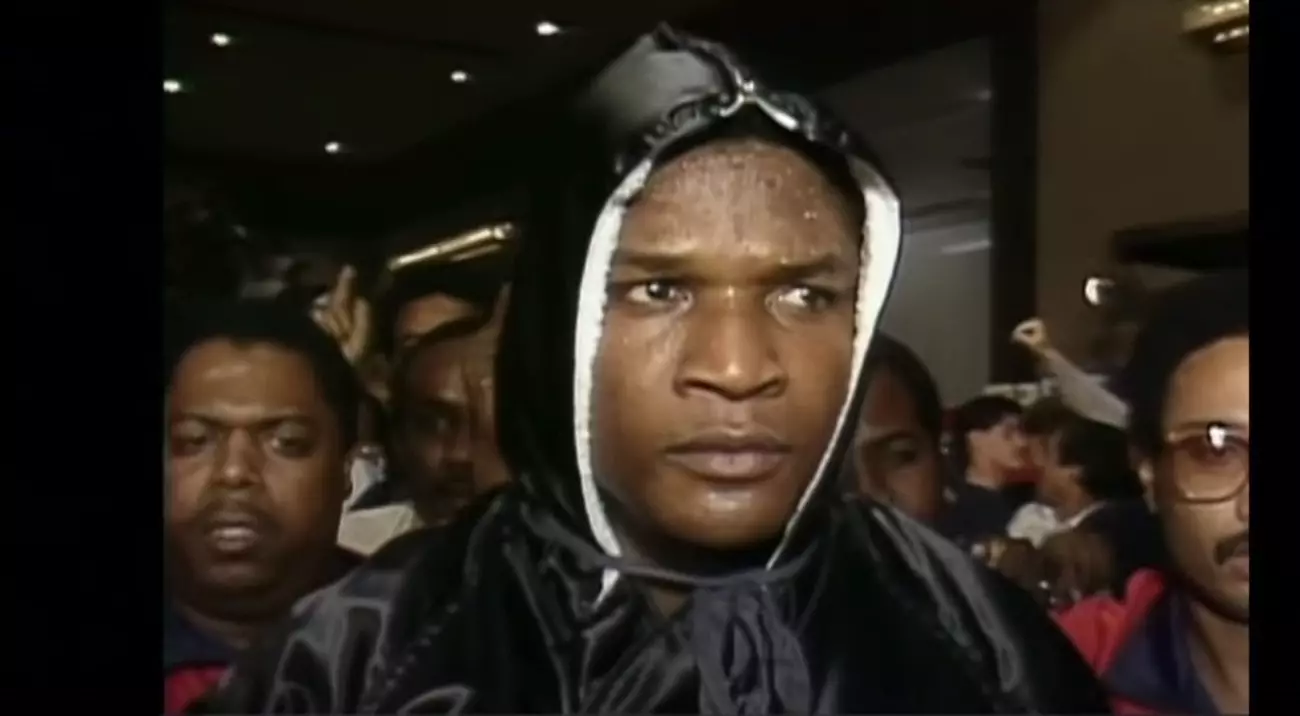On November 22, 1986, the world of boxing witnessed a turning point that would etch itself into the annals of sports history. On this fateful night, a 20-year-old Mike Tyson stepped into the ring to face Trevor Berbick for the WBC heavyweight title, and what followed was a performance so dominant that it would forever redefine the sport’s landscape. Tyson, often referred to as “Kid Dynamite,” showcased a level of ferocity and skill rarely seen in the ring, pummeling Berbick into submission within just two rounds. His victory not only made him the youngest heavyweight champion in history but also solidified his reputation as a devastating force, changing the perception of what it means to be a world-class boxer.
The fight against Berbick was not just a demonstration of brute strength; it was a masterclass in boxing technique and psychological warfare. Tyson’s strategy was clear as day—utilize speed, power, and impeccable timing to overwhelm his opponent. The defining moment of the match came in the second round when Tyson landed a left hook to Berbick’s temple that sent the Canadian to the canvas not once, but three times, each fall a testament to the sheer force of Tyson’s punches. The visual of Berbick struggling to regain his bearings, glassy-eyed and disoriented, encapsulated the raw brutality of Tyson’s style. It was as if the fight had revealed a chilling reality: Berbick, a seasoned fighter, had become prey to a predatory Tyson—a metaphorical human yo-yo tossed back and forth by an unstoppable force.
Post-fight, Tyson’s first words to his manager Jim Jacobs, “Do you think Cus would have liked that?” shone light on the significant influence of Cus D’Amato, Tyson’s mentor who had passed away years earlier. D’Amato’s teachings laid the groundwork for Tyson’s ferocious style and psychological approach, emphasizing both the mental and physical aspects of boxing. D’Amato’s absence was palpable, and in that moment, it was evident that Tyson had fulfilled his mentor’s vision of a champion—yet the underlying tone hinted at Tyson’s yearning for validation, a sign of the emotional complexities that would haunt him throughout his career.
After the devastating victory over Berbick, Tyson continued to dominate the heavyweight division, dismantling opponents with alarming quickness. His bout against Michael Spinks, which lasted a mere 91 seconds, was viewed by many as his most significant challenge. However, Tyson’s reign was characterized more by explosive finishes than sustained dominance. Critics began questioning whether Tyson’s style was sustainable, and even during his victories, there were whispers of cracks forming in his invincibility. Each explosive knockout masked an undercurrent of uncertainty, and when Tyson suffered a shocking defeat to Buster Douglas in February 1990, the boxing world was turned upside down.
Tyson’s rise and fall mirrored the complexities of a character often split between a ferocious boxer in the ring and a lost soul outside of it. For fans, Tyson’s knockout of Berbick remains a pinnacle of boxing, as it encapsulates both the excitement and the peril associated with athletic supremacy. He became a cultural icon and a figure of fascination—a flash of brilliance quickly obscured by personal demons, legal troubles, and the inevitable ebb of time. The fleeting nature of Tyson’s glory serves as a reminder that even those who achieve greatness can fall victim to their circumstances.
As we reflect on Tyson’s knockout of Trevor Berbick some 38 years later, it stands as a defining moment in boxing that continues to resonate with fans and athletes alike. Berbick’s bewildered expression as he faced defeat remains a haunting image, encapsulating the duality of Tyson’s legacy—one of exhilarating triumph over fear, yet shadowed by extraordinary vulnerability. Ultimately, Tyson’s relationship with the sport is a complex tapestry of fear, admiration, and unparalleled skill, making him a compelling figure in the landscape of sports history. Tyson not only showcased raw talent but left a lasting impact that goes far beyond the ring, giving fans an indelible memory that will be cherished for generations to come.

